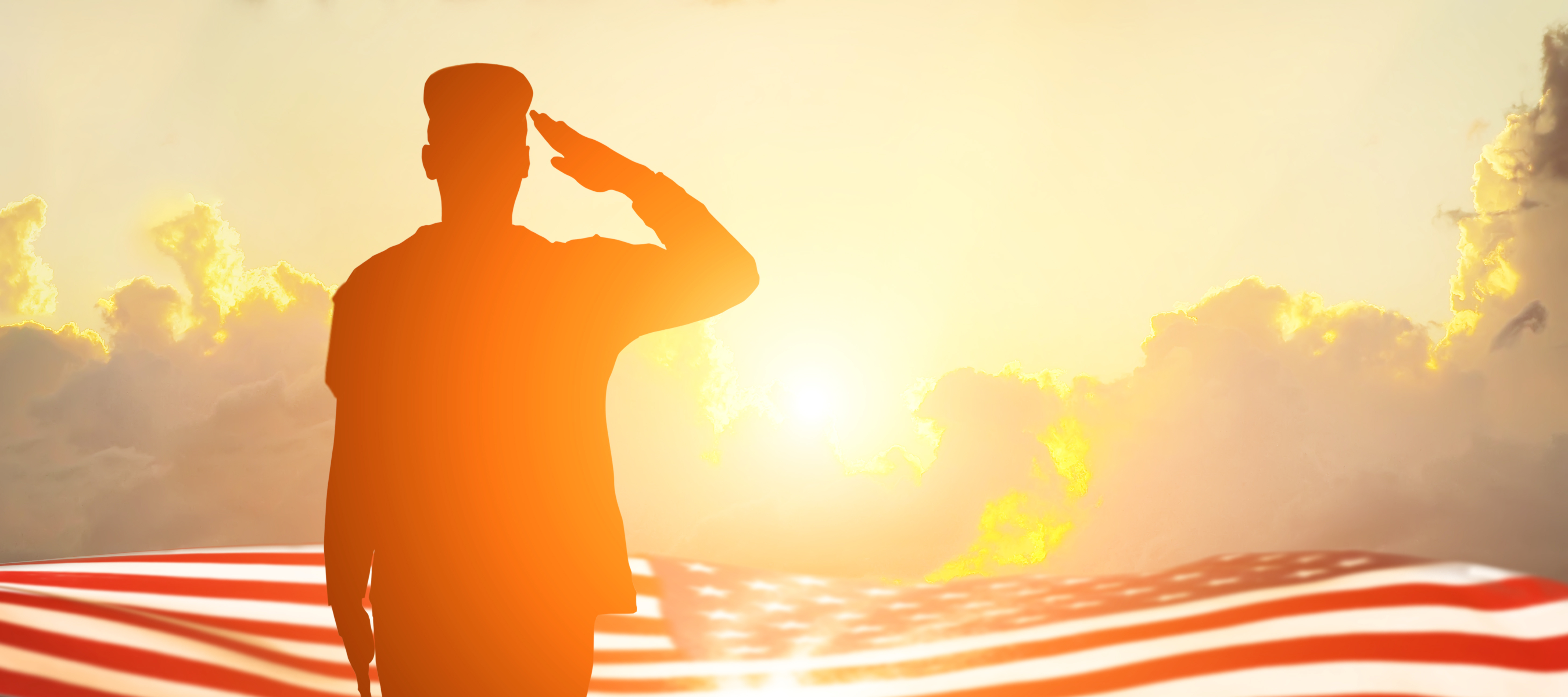
Living Message for Memorial Day
Paul Venable
Times Read: 8311
There is a universal lesson that we do not seem to learn so easily. Like we take for granted the regular rising and setting of the sun, it seems to be hidden in plain sight…
There is really no way around this. When any of us are willing to have our blood spilt, it is because we have found something greater than ourselves to die for. What we Americans remember on Memorial Day are those men and women of our Armed Forces who wrote our nation a blank check when they enlisted in the service and took the oath prescribed by our Constitution – and that check was cashed at the cost of their lives. We honor those so fallen on this day.
While we honor the dead, not to be forgotten are the many who return home – not dead – but marred or maimed physically, mentally and/or emotionally – who struggle to adjust, recover, and survive. While we have buried the honored dead, let us not also bury those yet alive in forgetfulness of their service and sacrifice.
The history of Memorial Day begins at the conclusion of the War Between the States, an internal conflict so divisive and bloody that the loss of life has not been surpassed by any conflict in America’s history before or since.
That war pitted brother against brother, son against father and neighbor against neighbor and had a particularly egregious effect on a divided Missouri with 110,000 fighting Union loyalists and 40,000 similarly loyal to the Confederacy.
What we have now as Memorial Day was originally referred to as Decoration Day and was also considered largely a Union holiday until World War I, after which it became more of a national recognition for all Americans fallen in war.
It is no secret that throughout any local or global interactions among humankind, we can find every reason to be divided, be it religious, racial, political, territorial, economic or anything else. There is no end to divisive conditions, circumstances and motives which can bring destruction and death among our world’s people. Nevertheless, in a Republic that our nation’s Founders credited its birth to Divine Providence , there is something that can unite us all, and reconcile us to one another and to our Creator. It is past time for this to be understood, internalized, and hearkened to.
The final stanza of The Battle Hymn of the Republic reminds us of another sacrifice:
So, to what else might our Memorial be? The most precious substance in eternity, the blood of Christ, which was freely shed for all and each of us, is an invitation to all, to shed division, malice, and hatred for the perfect law of liberty. Until we die, and indeed we must, let us…
… and while we yet live, let us live to make men free.
Paul Venable is chairman of The Constitution Party of Missouri and most recently the party’s 2020 candidate for Missouri Secretary of State.
There are times when blood is the ultimate currency of liberty.
There is really no way around this. When any of us are willing to have our blood spilt, it is because we have found something greater than ourselves to die for. What we Americans remember on Memorial Day are those men and women of our Armed Forces who wrote our nation a blank check when they enlisted in the service and took the oath prescribed by our Constitution – and that check was cashed at the cost of their lives. We honor those so fallen on this day.
While we honor the dead, not to be forgotten are the many who return home – not dead – but marred or maimed physically, mentally and/or emotionally – who struggle to adjust, recover, and survive. While we have buried the honored dead, let us not also bury those yet alive in forgetfulness of their service and sacrifice.
The history of Memorial Day begins at the conclusion of the War Between the States, an internal conflict so divisive and bloody that the loss of life has not been surpassed by any conflict in America’s history before or since.
That war pitted brother against brother, son against father and neighbor against neighbor and had a particularly egregious effect on a divided Missouri with 110,000 fighting Union loyalists and 40,000 similarly loyal to the Confederacy.
What we have now as Memorial Day was originally referred to as Decoration Day and was also considered largely a Union holiday until World War I, after which it became more of a national recognition for all Americans fallen in war.
It is no secret that throughout any local or global interactions among humankind, we can find every reason to be divided, be it religious, racial, political, territorial, economic or anything else. There is no end to divisive conditions, circumstances and motives which can bring destruction and death among our world’s people. Nevertheless, in a Republic that our nation’s Founders credited its birth to Divine Providence , there is something that can unite us all, and reconcile us to one another and to our Creator. It is past time for this to be understood, internalized, and hearkened to.
The final stanza of The Battle Hymn of the Republic reminds us of another sacrifice:
In the beauty of lillies Christ was born across the sea,
With the glory in his bosom that transfigures you and me;
As he died to make men holy, let us [live] to make men free,
While God is marching on...
So, to what else might our Memorial be? The most precious substance in eternity, the blood of Christ, which was freely shed for all and each of us, is an invitation to all, to shed division, malice, and hatred for the perfect law of liberty. Until we die, and indeed we must, let us…
Proclaim liberty throughout all the land unto all the inhabitants thereof.
… and while we yet live, let us live to make men free.
Paul Venable is chairman of The Constitution Party of Missouri and most recently the party’s 2020 candidate for Missouri Secretary of State.
[1] Wars ranked by total number of U.S. military deaths
[1][1] https://en.wikipedia.org/wiki/Missouri_in_the_American_Civil_War
[1] https://www.nps.gov/articles/memorial-day-history.htm
[1] with a firm reliance on the protection of divine Providence
[1] http://webstersdictionary1828.com/Dictionary/hearken
[1] Battle Hymn of the Republic – Julia Ward Howe (1819-1910) – published 1863
[1] Leviticus 25:10



